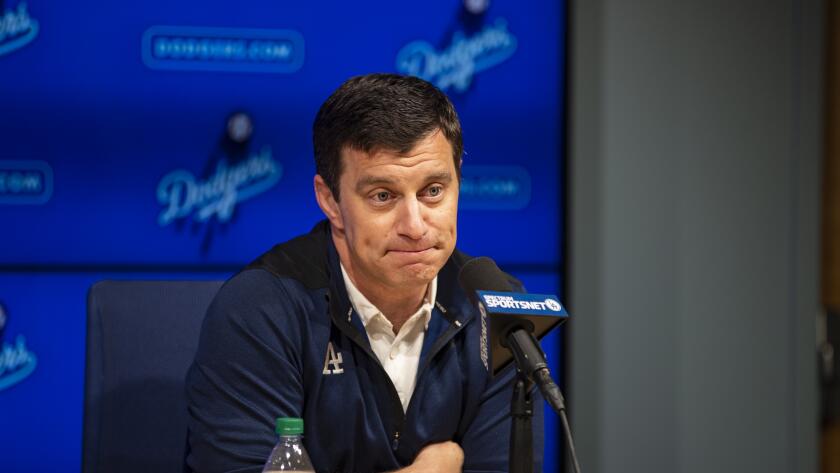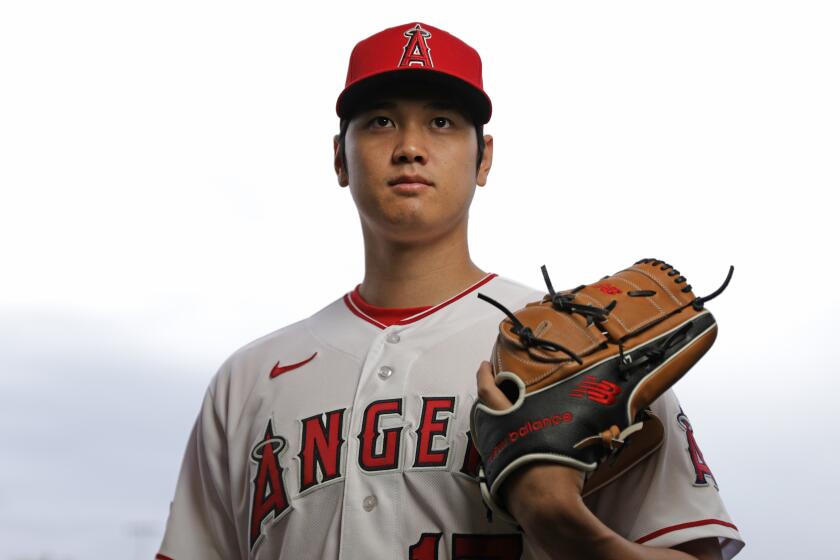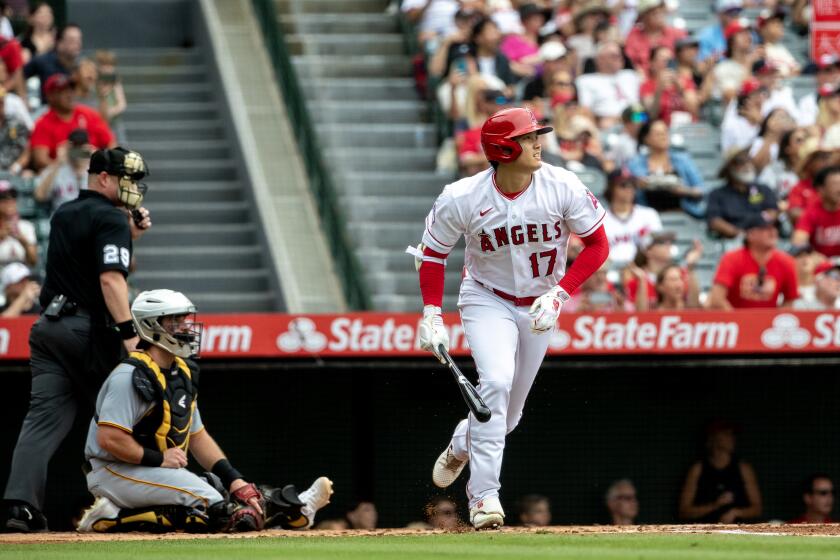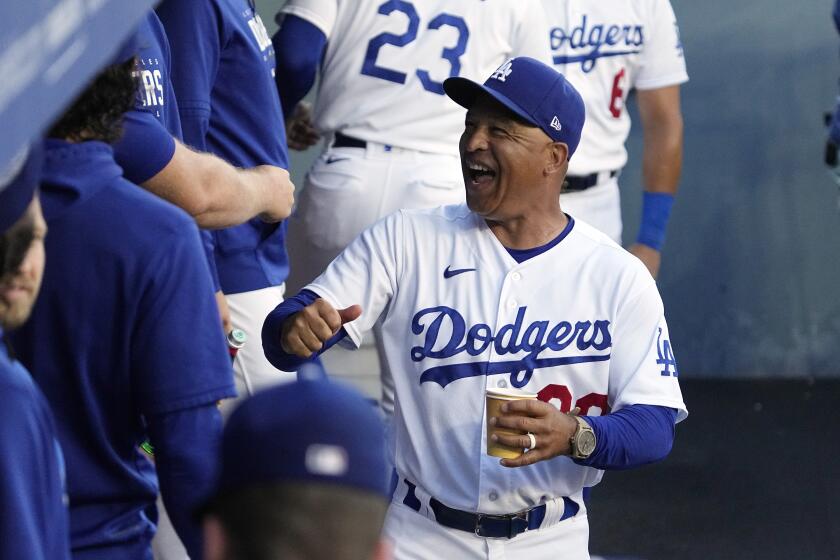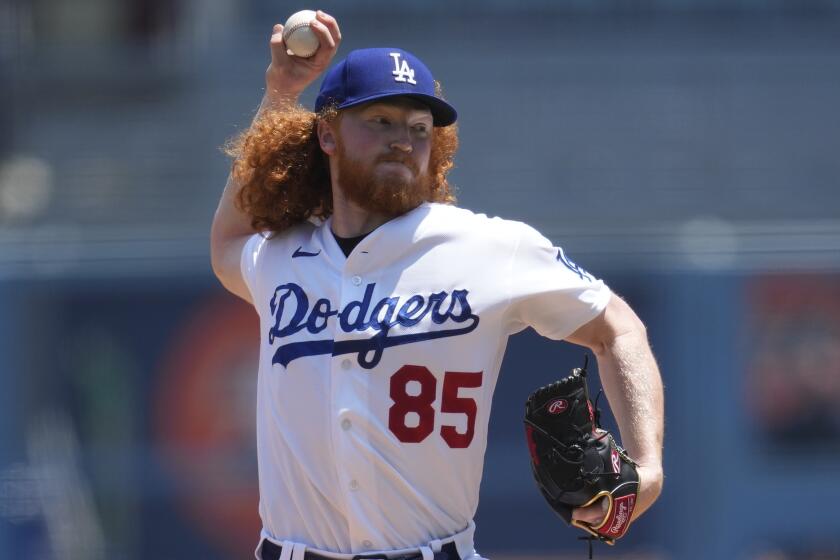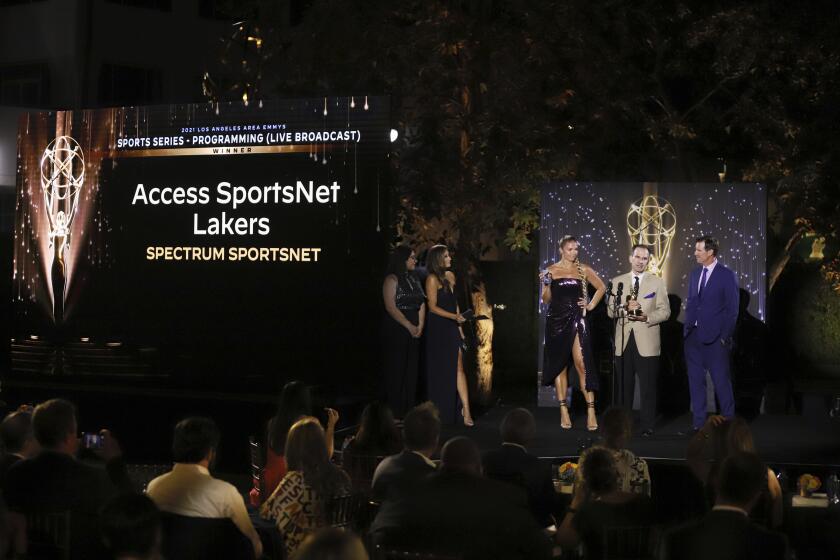Column: The Dodgers’ trade deadline whiff is no surprise. They aren’t chasing a World Series
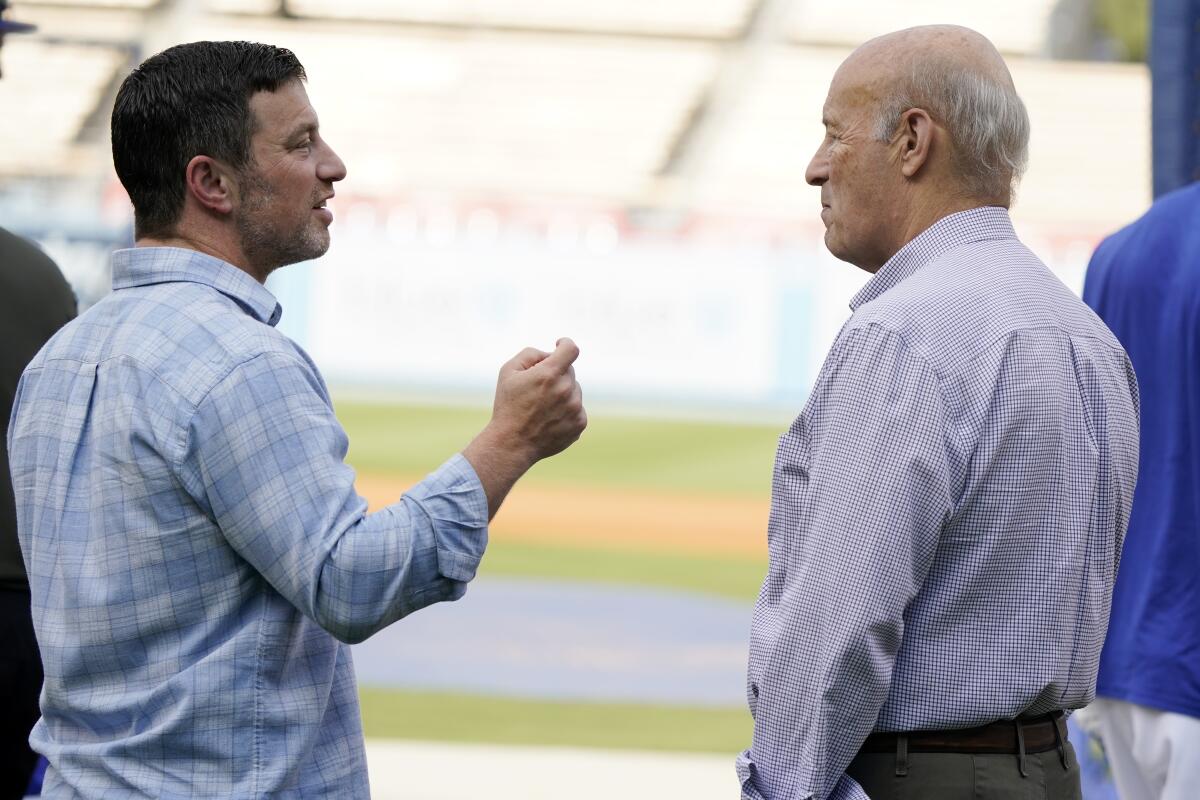
Surprised by the Dodgers’ failure to land a front-line starter?
Don’t be.
How Andrew Friedman approached the trade deadline was how he approached the offseason.
The Dodgers’ president of baseball operations can say whatever he wants about liking his team and its chances of winning a World Series this year, but his actions during the past eight-plus months have revealed something entirely different.
His most important acquisitions during the winter were reclamation projects such as J.D. Martinez and Noah Syndergaard.
His major additions in recent days were more players with similar descriptions, such as Kiké Hernández and Lance Lynn.
No team with a $240-million payroll can be accused of punting on a season, but no team that has nickel-and-dimed as much as these Dodgers recently have can be described as going for it either.
The Trevor Bauer fiasco wasn’t resolved until mid-January and maybe they were limited over the winter by the uncertain financial impact. Maybe owner Mark Walter decided to cut back on spending. Or maybe they really were saving to make a run at Shohei Ohtani next winter.
Twice the Dodgers were considered the favorites to land Shohei Ohtani. Twice the Dodgers failed. Why will it be different this offseason with the organization’s white whale?
Whatever the case, there was never a feeling the Dodgers were building a World Series team.
This suspicion was pretty much confirmed in recent days, as an underwhelming offseason has now been followed by an underwhelming trade deadline in which their reinforcements included Amed Rosario, Joe Kelly and Ryan Yarbrough.
Manager Dave Roberts didn’t wear his trademark smile on Tuesday, looking about as cheerful as Sean McVay was days earlier when the Rams coach talked about his rebuilding team’s prospects for the upcoming season.
The Dodgers continue to be plagued by the same problem they had before the trade deadline.
Their rotation remains shaky up top, with Julio Urías underperforming and Clayton Kershaw working his way back from a shoulder injury. They have an inconsistent bullpen and a top-heavy lineup.
Roberts is again being set up to fail.
The Angels refused to trade Shohei Ohtani, instead acquiring talent they hope can fuel a deep playoff run as they push to re-sign the two-way star.
Prioritizing the future over the present, Friedman refused to deal the necessary prospects to acquire the likes of Justin Verlander or Dylan Cease, who were available for the right price.
Asked if teams were asking too much for high-end pitchers, Friedman said that wasn’t the case, pointing to a proposed trade with the Detroit Tigers that unraveled when left-hander Eduardo Rodriguez invoked the no-trade provision in his contract.
“I mean, one we lined up on,” Friedman said, conveniently ignoring the reality that Rodriguez isn’t the same caliber of pitcher as Verlander or Cease.
The Dodgers have made blockbuster deals at the deadline under Friedman, for Yu Darvish, for Manny Machado and for Max Scherzer and Trea Turner. In each of those instances, however, the cost was limited to a handful of prospects with limited upsides.
The postseason field was expanded to 12 teams last year, transforming the trade market into more of a seller’s market. This is not an environment in which the Dodgers like to operate. Friedman’s image-sensitive nature demands they win each and every trade. Friedman is yet to show the willingness to overpay for a player, even if that player would drastically improve the team’s chances of winning a championship.
Dave Roberts is encouraged by the way this year’s Dodgers have responded to extreme adversity, but will it really be enough to win a World Series?
The Dodgers aren’t a team that would trade for a pitcher like Verlander or Cease under such circumstances. Last year, they also were more observers than participants at the trade deadline, as they watched the San Diego Padres acquire Juan Soto and Josh Hader and the Seattle Mariners obtain Luis Castillo.
Asked if the shift in the trade market could require the Dodgers to rethink their strategy, Friedman again pointed to the near-trade for Rodriguez.
“We were able to line up on a guy that we felt could have featured prominently in October,” Friedman said, as if he was about to strike a deal for Bob Gibson.
Rodriguez has a career earned-run average of 4.05.
To be fair, landing a No. 1 starter such as Verlander or Cease wouldn’t have guaranteed that the Dodgers would take down the Atlanta Braves in the postseason. Urías would have still had to rediscover his old form. Kershaw would have still had to return from the injury list and remain healthy. But the Dodgers would have given themselves a chance.
Instead, by refusing to trade for Verlander or Cease, the Dodgers more or less guaranteed their season will end the way the last one did, somewhere short of the World Series, in a place where their fans would wonder if the front office wanted to win as much as they did.
More to Read
Are you a true-blue fan?
Get our Dodgers Dugout newsletter for insights, news and much more.
You may occasionally receive promotional content from the Los Angeles Times.

